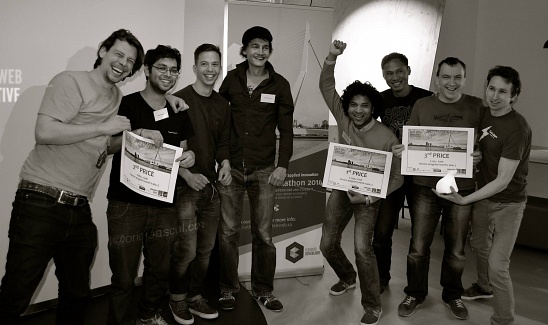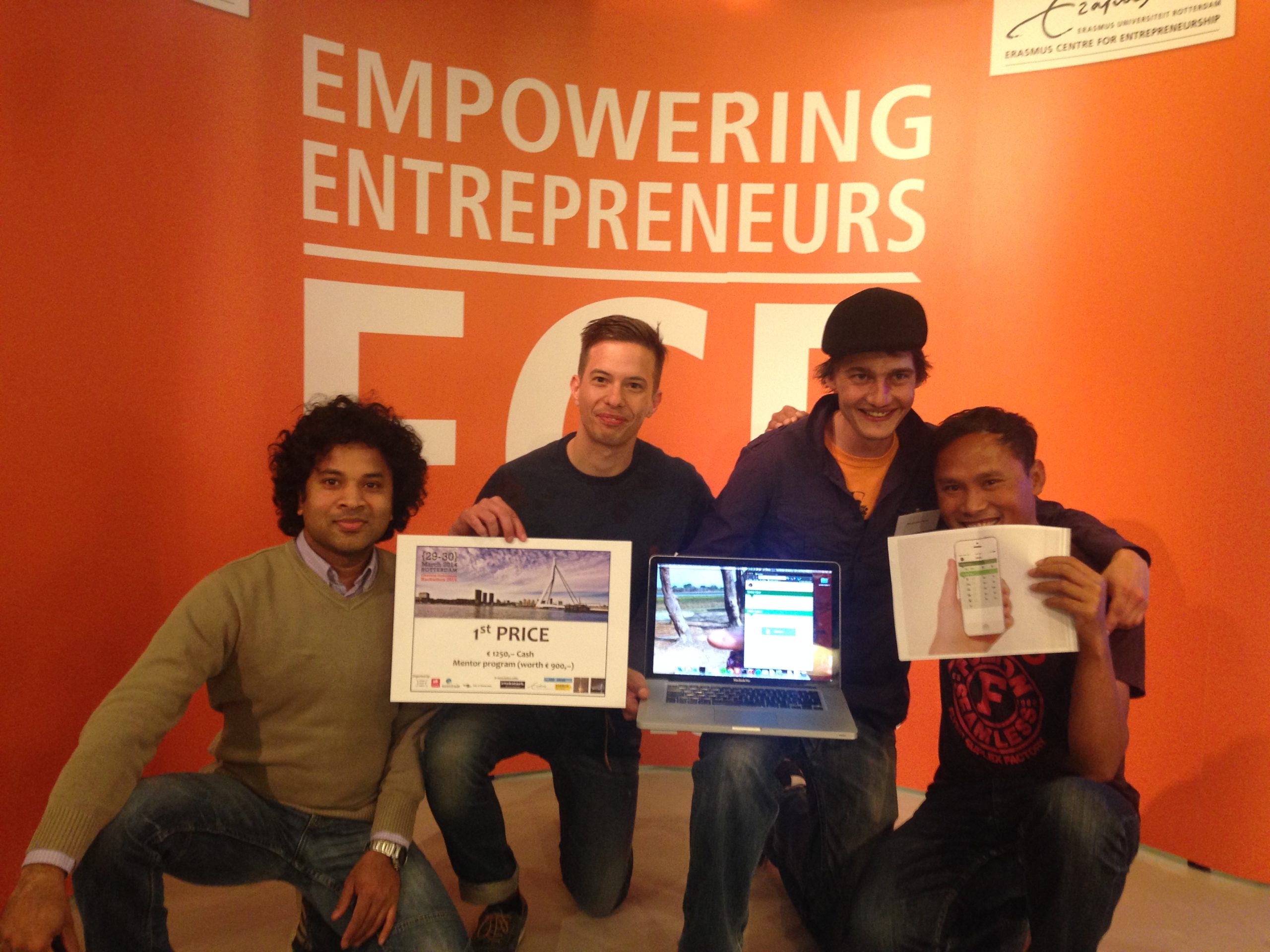TU student teams won first and second prize at the CleanWeb Hackathon in Rotterdam last month after thirty-six hours of programming for smarter energy and resources solutions.
The CleanWeb Hackathon is a worldwide weekend-long competition where developers and web entrepreneurs gather to build mobile and web apps around new ways to manage energy, water, waste and fuel. The thirty-six hour coding event landed in Rotterdam on March 29-30.
Team Enzie won the first prize with their representation of ones carbon footprint, followed by team Waterdicht who developed a a software tool that helps power producers to decide when best to convert their power into hydrogen instead of selling it at dump prizes.
PhD Student Industrial Design and Engineering Satish Kummar Beella MSc from team Enzie calls himself passionate on sustainability. Together with team members Bas Hennephof, Marcel Akerboom, Judi Godvliet and Ahmy Yulrizka he developed an App to make people conscious about their energy use (how long can you shower for one hour driving a car for instance?), compare their energy use with peers and offer alternatives to optimise energy use and reduce their carbon footprint.
Team Enzie, that won 2150 euro, is determined to turn their App into a business start-up. Beella thinks money can be made by recommending green products and services in the App and also by selling data on consumers’ choices to interested parties.
When asked how they kept awake for 36 hours, Beella doesn’t see the problem. His adrenaline drive more than compensated for tiredness. “We could have continued for another day”, he says. “No we had to skip some of the content in order to be ready before the deadline.
 Power storage
Power storagePower storage
Two TU master’s students, Debarshi Basak (computer science) and Siebe Trompert (Industrial Ecology) became second with their project Waterdicht which tells energy producers when it’s wise to convert power into hydrogen or other fuels. The idea is that power prizes (in euro per megawatthour) vary in response to offer and demand at the power market. These variations have grown larger as a consequence of larger and more variable production from solar and wind energy. Even negative power prices have been seen.
Under these circumstances, it may be wiser to convert power into hydrogen. But when exactly? That’s what the Waterdicht software advises. It monitors the power prize and it has a database of various hydrogen production plants. When prize drops below a certain level, the application will advise the power plant operator to switch to hydrogen production.
During a trial run with 2013 data of a small power plant in the Rotterdam area the breakeven prize was at twenty-three euro/mwh, says Siebe Trompert. That occurred during approximately 10% of the time. Trompert: “If they’d used the software, they could have saved 400 thousand euro.”
Their application was rewarded the runner-up prize of 1,700 euro. The third winner was Bobo Renewables, an interactive game that teaches children all about renewable technologies and activates them to save energy at home.
The prize has motivated Trompert and Basak to elaborate their project. Trompert says: “We now know there is a potential. Our product can have a large impact on the way we handle power surpluses.”
The CleanWeb Hackaton is a CleanWeb Initiative event.



Comments are closed.